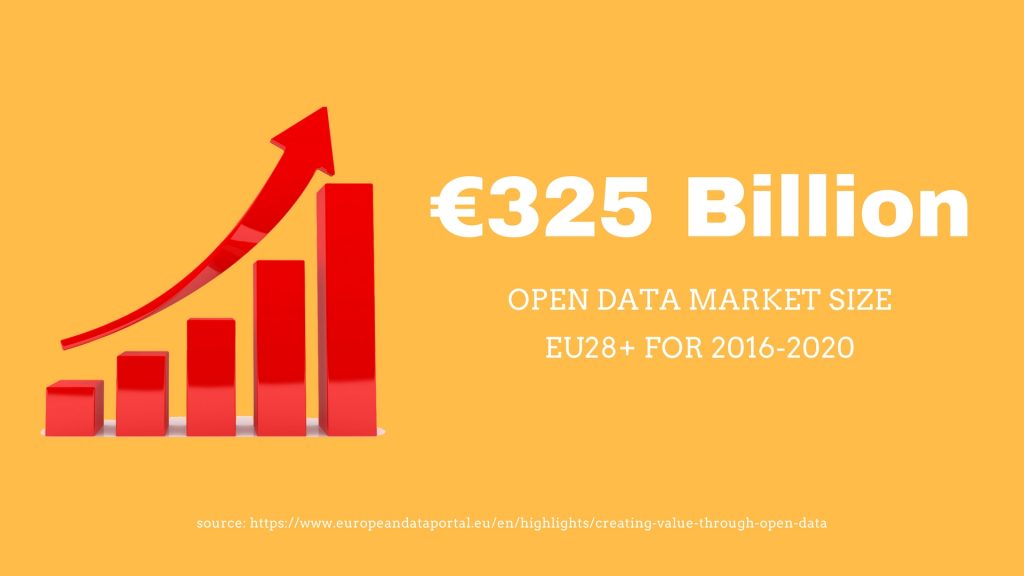 Aishah Selamat explores the myths and benefits of using Open Data for businesses.
Aishah Selamat explores the myths and benefits of using Open Data for businesses.
Nowadays, it’s commonly said that “data is the new oil” and is one of the most valuable resources businesses have in this digital age. Open Data is data that are made available for the public to access, use and share. For instance, data.gov.uk has made more than 40,000 data sets available.
According to the European Data Portal, within the EU alone, Open Data market size in 2016 amounts to 55.3 billion Euros. The market size is projected to increase by up to 37% in 2020 – amounting to 325 billion Euros (with correction for inflation).

Unlike the public sector, the private sector has been quite apprehensive in embracing Open Data. Businesses have traditionally been more concerned with protecting the commercial value of their data, but they are missing out on many possible benefits.
There are three common myths about businesses and Open Data:
Myth 1: Open Data is bad for business
The myth that Open Data does not bring value to the business is a classic belief amongst businesses. Their argument goes that as Open Data is made available to the public at no cost, anything you don’t pay for has no value.
In fact, if Open Data is utilised strategically by businesses, it can be a key driver for a new product or service innovation for the company.
For example, GeoLytix, a UK- based startup that specialises in geospatial data and consultancy leverage for Transport for London, the Land Registry, OpenStreetMap and several Whitehall departments. To date, prominent UK companies like Asda, Barclays, Boots and many more are using GeoLytix’s products.
Myth 2: All data should be open
Datasets are only “open” when they are openly licensed for public usage.
However, sensitive commercial or personal information is protected from being publically shared.
The Open Data Institute (ODI) data spectrum diagram is a good source of reference for the different varieties of data classification: Closed, Shared and Open data.

If a dataset is no longer subject to data protection laws and has been anonymized, it is no longer considered a personal data – therefore, it can be published.
Myth 3: We can’t be sure data isn’t incomplete or out-of-date
In standard instances, a shared dataset is conventionally marked with its collection date and records updated and marked as up-to-date.
Nonetheless, it is worth noting that missing records for a certain time frame may occur should the data collection not take place within the timeframe.
Therefore, it is important to check the condition of the dataset before usage.
So, how can businesses actually benefit from Open Data?
- Open Data has significant economic value which includes opportunities for spurring development of new products and services, increasing organisational efficiency and generating benefits to the consumer– cost savings, convenience, better products.
- It aids in building up the organisation’s data impact initiatives by creating a more transparent and versatile platform – enabling creativity and experimentation opportunities. In addition, it will also aid the organisation in population segmentation, thus, customising and supporting decision-making.
- It creates diverse business opportunities, such as improving new products and services, raising the organisation’s productivity, and enabling entirely novel lines of business.
- It also provides benefits to consumers by creating product and pricing transparency. In addition, it allows a new medium for the consumers to provide feedback for enhancing and improving the quality of services and goods.
The benefit of Open Data can be further enhanced if the Open Data sharing platform and mindset is advocated by private industry along with public agencies – cultivating a vibrant open data ecosystem.
As the digital landscape moves towards an interconnected sub-system of smart cities, an open network will be needed.
About the author
Aishah Selamat is one of our UK Data Service Data Impact Fellows. Aishah is a second year PhD student with the Faculty of Science and Technology at Bournemouth University. Her PhD research is co-funded by Bournemouth University and County Coaches (UK) LLP (a company of Travelmanagement4u.com). Aishah’s research aims to develop an Intelligent Transportation Analytical Model for SMEs.
